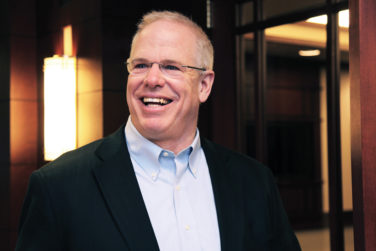I once read an article by author and New York Times journalist Peggy Payne that contained some great career success advice. She wrote about how not getting selected for the Governor’s School of North Carolina when she was 16 motivated her to excel and has led to her life and career success. She may not have made it into the Governor’s School, but she ultimately graduated from Duke.
In my career advice book Success Tweets, Tweet 37 says: “It’s not what happens to you, but how you react to it. Don’t dwell on the negative, use it as a springboard to action and creativity.” In other words, don’t be afraid to fail. Fear is the enemy of self-confidence and career success. We all want to feel good about ourselves, so most people avoid doing things that they think might lead to failure, criticism or rejection, which are not pleasant experiences. They lower our self-esteem and make us feel bad about ourselves. However, if you want to create the life and career success you want and deserve, you must possess the courage to do things that might result in failure, criticism or rejection.
Failure, criticism and rejection provide you with the opportunity to grow and develop and ultimately to succeed. They are outcomes, and you can’t take them personally. They are a result of things you have done, they are not who you are. We all make mistakes and fail. We all do things that cause others to criticize or reject us. This doesn’t mean that we are failures. It means that we have made some poor choices and done some not-so-smart things.
Failure, criticism and rejection provide the opportunity to start over and, hopefully, be a little smarter. Buckminster Fuller once said, “Whatever humans have learned had to be learned as a consequence of trial and error experience. Humans have learned only through mistakes.” That’s why fear is the enemy of self-confidence and success. If your fear of failure, criticism and rejection paralyzes you to the point where you aren’t willing to take calculated risks, you’ll never learn anything or accomplish any of your goals. Don’t be too hard on yourself when you fail, or when others criticize or reject you. My best career advice is to put your energy into figuring out why you failed and then do something different. Here are five career questions you should ask yourself the next time you fail, get criticized or rejected.
• Why did I fail, get criticized or rejected?
• What did I do to cause the failure, criticism or rejection?
• What could I have done to prevent the failure, criticism or rejection?
• What have I learned from this situation?
• What will I do differently the next time?
Answering these questions honestly will allow you to use failure, criticism and rejection to your advantage. In Think and Grow Rich, Napoleon Hill says, “Every adversity, every failure and every heartache carries with it the seed of an equivalent or greater benefit.” I know it’s hard to see the benefit or opportunity in failure, criticism and rejection, but it’s there—you just have to look hard enough. Trust me on this one: facing your fear of failure and learning from it when you do fail will pay big career dividends down the road.




